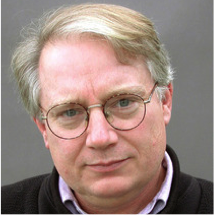Introduction to the Argo Float Program

Professor
University of Washington
University of Washington
Dr. Riser's primary interests include the ocean's role in climate; circulation of the ocean and ocean/atmosphere/ice interactions through direct observations; and the interactions between physical aspects of circulation and the biogeochemical properties of the ocean.
Webinar Clip
Dr. Riser is the Principal Investigator for the UW portion of the Argo Float Program and is highly interested in the ocean's role in climate. In this clip he explains what an Argo float is and how it has increased scientists' knowledge of global ocean salinity since its implementation. Full webinar: From Skin to Deep
Click here for a transcript of this clip (PDF, 37.5 KB). |
Resources
Applicable Science Standards
 Using Mathematics and Computational Thinking. In both science and engineering, mathematics and computation are fundamental tools for representing physical variables and their relationships. They are used for a range of tasks such as constructing simulations; solving equations exactly or approximately; and recognizing, expressing, and applying quantitative relationships.
Using Mathematics and Computational Thinking. In both science and engineering, mathematics and computation are fundamental tools for representing physical variables and their relationships. They are used for a range of tasks such as constructing simulations; solving equations exactly or approximately; and recognizing, expressing, and applying quantitative relationships. Constructing Explanations and Designing Solutions. The goal of science is the construction of theories that provide explanatory accounts of the world. A theory becomes accepted when it has multiple lines of empirical evidence and greater explanatory power of phenomena than previous theories.
Constructing Explanations and Designing Solutions. The goal of science is the construction of theories that provide explanatory accounts of the world. A theory becomes accepted when it has multiple lines of empirical evidence and greater explanatory power of phenomena than previous theories. Obtaining, Evaluating, and Communicating Information. Scientists and engineers must be able to communicate clearly and persuasively the ideas and methods they generate. Critiquing and communicating ideas individually and in groups is a critical professional activity.
Obtaining, Evaluating, and Communicating Information. Scientists and engineers must be able to communicate clearly and persuasively the ideas and methods they generate. Critiquing and communicating ideas individually and in groups is a critical professional activity.